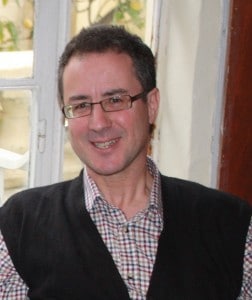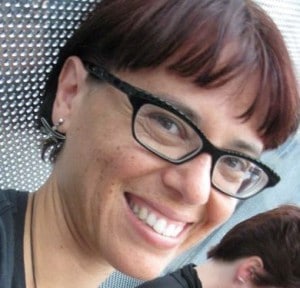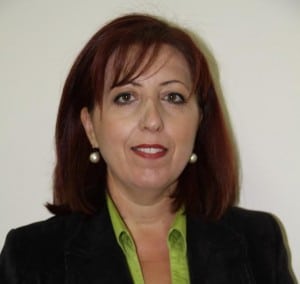
A question of language
Do you speak mostly in English or Maltese? And does it really matter? This is a thorny subject in this country where the question of language has always been rooted in socio-political implications. In Malta, the minute we meet someone new we tend to instinctively know which language they feel more comfortable with, and while some can easily switch back and forth, not everyone is bi-lingual. Some people simply refuse point blank to speak the ‘other’ language, whether it is Maltese or English. In some cases, an unacknowledged (and not often well-concealed) prejudice can infiltrate even the most innocuous conversation. An invisible wall goes up and silent cultural barriers shift into place due to the language used, as well as one’s accent and pronunciation. Josanne Cassar asked a few people who work in the media whether the language they speak defines who they are
 Antonia Micallef (PBS journalist)
Antonia Micallef (PBS journalist)
I prefer using Maltese, not only because that is how I was raised, but also because for the last 12 years I’ve worked in an environment where Maltese is the main language required. In fact, you could probably guess this right away, because I’m sending you these answers in Maltese!
At home I mainly speak in Maltese, except with my son – if he asks me a question in English I answer him in English, but answer in Maltese when he speaks Maltese.
At work I always speak in Maltese, in fact when I interview people I insist that they reply in Maltese except in cases when they genuinely do not know the language.
I speak to my son in both languages and I’m proud to say that although he’s only three years old, he can distinguish between the two. His sentences are either completely in Maltese or completely in English. He doesn’t switch back and forth except for a word here and there when he slips in a corrupted English word. For example, he might say, “Ma, din il-karozza mhix tiwworkja sewwa” (this car isn’t working properly), but when he does I tell him I did not understand what he said. So then he realizes his mistake and tells me in correct Maltese, “Ma, din il-karozza mhix tahdem sewwa”
I do feel that my upbringing has affected my choice of language because we always spoke Maltese at home and I went to a government school where we spoke Maltese except for during the English lesson and other language lessons obviously.
After 12 years, I feel very confident in my ability to write Maltese well and I also feel that my written English is good. However, I do have to admit that although I have an ‘A’ level in English and I’m CELTA-qualified to teach English as a foreign language, when it comes to speaking English I sometimes feel less confident than I do in Maltese.
My work as a journalist demands that I convey information in the most concise way possible so I am always trying to improve my skills in writing both languages in a way which is straightforward without leaving out anything of substance.
When I meet a Maltese person, I always speak to them in Maltese even if they speak to me in English. You might say, but why don’t you do the same with your son? It’s because I want my son to know both languages well and I believe that they need to distinguish between the two languages from the time they are very young.
I don’t think I’ve ever come across prejudice because of the language I speak, or else I didn’t notice!
When I get very angry (which is rare) a rude word in Maltese sometimes slips out, but usually when I’m just annoyed, for some reason, my favourite word is ‘pacenzja’ (patience).
I think bilingualism in children is possible – from the time he was a baby until he started kindergarten last October, I always spoke to my son in English, while my mother and sister spoke to him in Maltese. When I started sending him to a childcare centre at the age of one, they spoke to him in Maltese as well. In this way, has grasped Maltese very well, and yet he has not forgotten his English.
 Malcolm J. Naudi (Managing Director, Know Now Ltd)
Malcolm J. Naudi (Managing Director, Know Now Ltd)
My first language is English. This was the language we used to communicate with at home in my childhood and we would not normally mix the two, although we do sometimes speak in Maltese to certain members of the family.
The language I use at work is also predominantly English, although it depends on the person you are talking with. In many official situations, I would tend to speak in Maltese.
English is also the first language at home with my own children. It was natural for us to speak English to the kids because even my wife considers English to be her first language.
Although English is predominantly the language I prefer to use (and was the language at both the Church schools I attended, St Aloysius College and Stella Maris College), I have become highly fluent in Maltese (apart from being proficient in Italian and French) because of my current focus on public relations. I read all the papers, monitor TV news bulletins and school for me is a distant memory (having left Form V at St Aloysius College in 1977).
I do feel confident and competent in writing and speaking Maltese, as was confirmed only this week when I had to write the IĠM chairman’s message for the Malta Journalism Awards brochure in Maltese.
English has always been my forte and presents absolutely no problem. A 30-year career at Allied Newspapers is testament to that.
I do sometimes switch languages according to the person I’m speaking to. Being in the PR business I prefer to communicate in the language my client feels most comfortable in.
In my early days at The Times of Malta I was ridiculed since I was English-speaking but I soon picked up Maltese on the job and over the years built up my proficiency. However, when I lose my temper I would say that my swear words are predominantly in English.
Bi-lingualism, in my view, does no harm to children. They will communicate in the language that is spoken to them and depending on the individual. My children have faced the ‘stigma’ of being English-speaking but go out of their way to learn Maltese to fit in both at school/university and at work. However, having said that, I admit they mostly tend to socialise with English-speaking friends.
 Sonia Young ( RTK producer/presenter)
Sonia Young ( RTK producer/presenter)
I use a mixture of both languages. With my husband I normally speak Maltese but my children are both English and Maltese speaking so there tends to be a mixture of both. The nature of my work in radio makes it imperative for me to speak Maltese and it has to be good Maltese.
I think both family upbringing and schooling affect the language we use. In my case, I am very confident when it comes to writing in Maltese as luckily I have a sound
knowledge of the Maltese language. The same holds true for English – thank God I always had excellent teachers and I am quite happy with my level of competence in both languages. I firmly believe that primarily we should all know how to speak and write our native language even if we have a good command of the English language.
I do tend to switch languages depending on who I’m speaking to, mostly because I believe it makes the person I am speaking to feel more comfortable. There have been times I have been met with prejudice by certain people because of the language I’m speaking.
When I’m angry I speak my mind in Maltese mainly, but then again, it depends on who has angered me.
I honestly and truly believe that children are not likely to be confused when faced with a bi-lingual situation. However, and this I truly believe, one must speak the language they choose to speak in a correct way. And please, no Manglish!
Ramona Depares – The Times blogger 
I come from a Maltese-speaking family, however my parents always made it a point to “start me off” learning English at a very young age, even before I started kindergarten. Maltese started out as my first language throughout primary and secondary school, however, this eventually changed. The switch was probably due to the fact that since I finished secondary school I have always been surrounded by people who consider English to be their first language, so conversing in English became more natural.
My family speaks Maltese at home, while at work I mostly speak in English. Having said that, if I start using English at home – and it happens because sometimes it’s more natural – my parents follow suit, so it’s not like there is a hard and fast rule.
If I had children, I believe I would follow my parents’ technique as it seems to have worked. I would dedicate time for both Maltese-only and English-only conversations. Despite the fact that my parents’ household is a purely Maltese speaking one, they ensured I grew up bi-lingual. Once I had mastered both languages, they left it up to me to use whichever language I felt like. The fact that I use mostly English at work and while socialising reflects more other people’s choices than mine – if people speak in English I will adapt to their preference and if they’re speaking Maltese, I’ll do the same.
I’m not as confident as I used to be when writing in Maltese, although I feel my standard is quite decent and I try to keep abreast of the new grammar regulations. I write in English every day, so I’m quite confident in that area.
I do switch languages according to what language the other person is speaking, as I feel that it’s only polite. Personally I have never met with any prejudice mainly because I am able to choose whichever language best suits the circumstances. When I’m angry, however, I switch to English!
There are many children who are living proof that you can teach kids to be bi-lingual – and by bi-lingual I don’t mean using a corrupt mish-mash of both languages but mastering each one properly. I used to be one of these children. The trick is to make sure that each language gets enough “solo” time.
Carmen Sammut – University lecturer in media and international relations
Maltese is my first language. In conversations with my family of origin and neighbours I tend to switch to the local dialect, which is my mother tongue. The moment I step into my Mum’s house, I just switch to standard Maltese unconsciously. Outside the context of home and the hamlet where I reside, it is rather difficult for me to speak in my local dialect, even when I try.
I use the English language to teach and write and these days I hardly have much opportunity to write in Maltese. I notice that some of my friends
are very articulate in the Maltese language but they say they cannot write as they have never had the opportunity to write in Maltese since they finished their Ordinary Matriculation examinations many decades ago.
I definitely think that family background and schooling affects one’s language. I lived in a village and attended a state school in an era when the vernacular was still valued by working class families. In that context we did not even dream to question the validity of learning the Maltese language. If I were to switch to English at home, my parents would have scolded me – it would have been considered “qziez” (showing off).
These days I am not always confident when writing in Maltese because I do not practice – but overall I express myself very well. For many years I only wrote Maltese scripts for the broadcasting media and so spelling mistakes – like a misplaced ‘gh’ – went unnoticed and nobody corrected me. My written language had improved when we had a proofreader at TVM. I can
still clearly visualize Fr Previ with his much dreaded red pen. He meticulously marked the pages, and we, reluctantly, corrected the mistakes. It was almost a Pavlovian exercise and we surely learnt fast. In those days, before the advent of computers, a mistake was ‘punishable’ by a lot of time-consuming retyping. So we did our best to improve our grammar to get it right the first time.
I would say I’m confident when writing in English because of practice and the blessed spell check.
Learning languages is a life-long process. The more we read and the more we write and practice the more we improve. A good command of languages is essential for journalists and for academics. When we write and publish we need to penetrate a very competitive international market and there is no room for sloppy writers.
I just wish I had the time to improve my third and fourth languages. During my recent stint in Palestine I wished that in my school days I had taken my Arabic lessons more seriously .
I also feel that language is about communication and it happens in a context. I switch from dialect to standard Maltese, or to a particular English register depending on the circumstances and the people I am conversing with. The fact that we teach in the English language at the University of
Malta does lead to many opportunities for students, academics and for the development of this institution itself.
Having said this, I am rather concerned that there is a segment of the Maltese population which has literally lost its tongue. I notice young people who lack adequate linguistic competences in any language. Language is linked to our identities: to our status and cultural background. We need to remember that it was a protracted quarrel over language that sparked the current political polarities in Malta to an extent that it marked the genesis of party politics. Language division symbolised a political and cultural distance and became the political banner around which different groups rallied.
I still suspect that some people switch to English as a kind of status banner or to indicate their social mobility – even affluence. I just hope that the Maltese language will not become moribund; or merely a means to ensure that we keep keen translators busy in a grey office
somewhere in Brussels or Luxembourg.
The choice of language when I’m angry depends who I’m angry with. As a student I lived in a shared flat which led to numerous silly clashes with a housemate, whose mother tongue was Mandarin. In my rage, I tried to control my body language and vented out in the Maltese language simply to avoid making things even worse with her. Little did I know that in the other room an Algerian friend clearly understood all the common Semitic words. Needless to say anger soon turned into deep laughter.
When it comes to bi-lingualism, empirical studies show that children can absorb two or more languages as long as they are exposed to them with consistency. In multi-lingual families it is easy for them to pick the language of the mother alongside that of the father. I do feel that parents and grandparents worry that bi-lingualism may confuse children. As a result, they opt for English, even in the case of family members who have very little English proficiency. Actually it is the poor use of the language that confuses children!
 Alex Grech – Managing Partner at StrategyWorks.net and doctoral researcher
Alex Grech – Managing Partner at StrategyWorks.net and doctoral researcher
My first language is Maltese, because that was my mother tongue, the vernacular around the family kitchen table. I normally speak in English, since my wife is English. She speaks several other languages, but not Maltese, despite living here since 1994. So I use English at home and the language of business is still English; in my world, at least.
I only speak to my 9 year-old son in English because, culturally, he is very English, despite being brought up inMalta. It is something I regret, but over which I have little control. I simply don’t have the time to teach him Maltese properly myself, and the school system has failed us miserably.
I think family upbringing dictates which language we use. I was fortunate to be brought up in a working-class family with parents who spoke Maltese, but who saw education (and the learning of English) as a tool for social empowerment. So I learnt Maltese well at home, and then English well at school. In the 1960s, there was a real effort to teach kids decent grammar. I think most of that has been lost now.
I’m reasonably confident when writing in Maltese. I was much better when I was younger and years spent living away from here did not help. As for written English, I am quite confident. I always nailed the English prize at school, right up to sixth form So on the whole, I am comfortable speaking and writing both languages.
I speak to my father and my siblings in Maltese and I speak to people in suits in English. I can normally tell within seconds which is the language of preference of the person I am talking to. I slip into it intuitively. I have never met with any prejudice because I can speak both languages adequately. Prejudice finds its roots in other factors in Malta – social capital, lack of clear affiliation with political parties, some semblance of critical thinking. That kind of stuff.
When I get angry I slip mostly into Maltese, but it depends on the type of anger. Maltese is wonderful for a purer form of anger (say, when confronted by idiotic, selfish drivers). English is better for a more strategic type of anger (say, when dealing with idiots in suits). Maltese operates at the cutting edge of anger that relies on profanity; English has a wonderful four-letter word that can be operationalised to good effect, in certain circumstances.
I think raising children to be bi-lingual is possible, but it needs the active participation of the parents and the schools. We’ve found that the schools are stuck in this quandry of the curriculum that assumes/ imagines that we are living in a bi-lingual society. We don’t. Both languages have to be learnt properly. In our case, we tried hard to get the school to organise something for kids like our 9-year-old who speaks English at home, but has a smattering of Maltese. We failed totally in our efforts – so we have basically given up on him ever learning the language properly. It is also my fault – because my current academic research workload does not give me the requisite time to teach him Maltese myself. And then there is the issue of the mother tongue – it is not an accident that it is called such. If your mother is English (and has no interest in Maltese), the chances are that you will never learn both languages properly.
- April 26, 2012 2 Comments Posted in: Features





